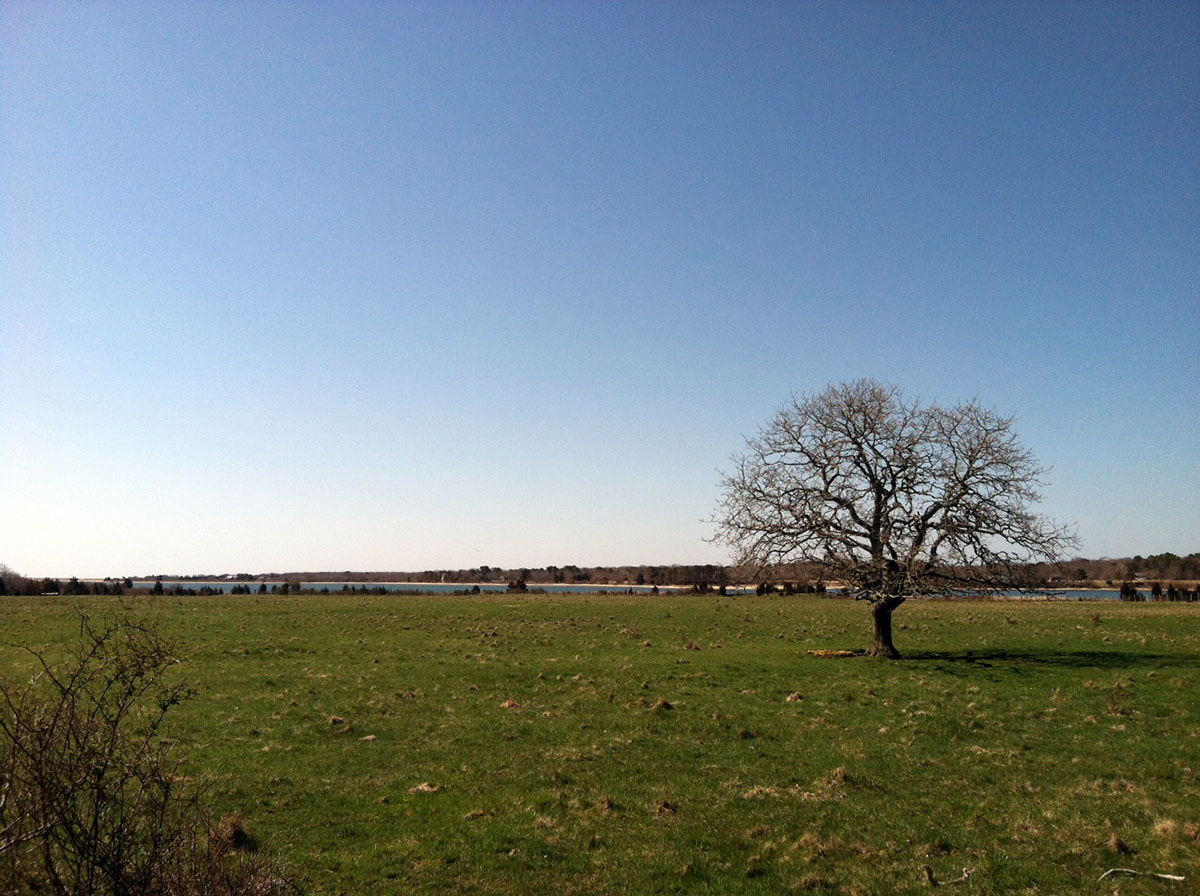
Flat Point Farm
Saved at the last minute from a likely fate of residential development, the iconic Flat Point Farm will instead remain forever in agricultural use (and also feature public walking trails once they are completed). In March of 2013, the West Tisbury Selectmen voted to assign to the MV Land Bank the town’s right to purchase the 12.9 acre parcel located right on Tisbury Great Pond. The Land Bank completed the purchase in September of that year, after securing an agricultural restriction on the open fields on Flat Point.
Up to that point, things looked bleak for a successful conservation outcome at Flat Point. The Land Bank made it clear that it did not have the money to purchase the land. The landowners, the Fischer family, wrote an open letter to the community urging conservation groups “to pursue protecting Flat Point in its entirety,” and to “please contact the Vineyard Conservation Society…to voice your opinion.”
In its familiar role as facilitator, VCS joined with partners to try its best. The idea of finding one or more donors willing to extend a long-term loan to the Land Bank was favorably received, and revived hope for a Land Bank role. There were a few false starts, but after the critical intercession on the part of one Flat Point neighbor, Sam Look (then a member of the VCS board, now the staff), to another, Stephen Rattner, prospects brightened. Steve initiated what proved to be fruitful discussions with the Land Bank, and the result looks tremendously hopeful.
How did the opportunity to secure Flat Point for conservation occur? The 110-acre farm is enrolled in a program for agricultural lands, provided for under Massachusetts General Laws Ch. 61A, that provides property tax benefits but not permanent conservation status. The Ch. 61 statute requires town notification of any planned sale and, for a period of 120 days from the date of notification, gives the town a first-refusal option to meet the offer to purchase. Importantly, the town may assign its option to a private conservation group or to a public conservation entity like the Land Bank.
Faced with the need to sell some of the farm to settle estate obligations, the family entered into a contract for sale of a small parcel – approved for residential development – on the Point for $2.9 million. With the clock ticking on the town’s 120-day (assignable) option, great effort was expended to bring a guarantor to the table that could help bring this property into permanent conservation. Once financing was in place, the Land Bank was able to step up as a buyer.
